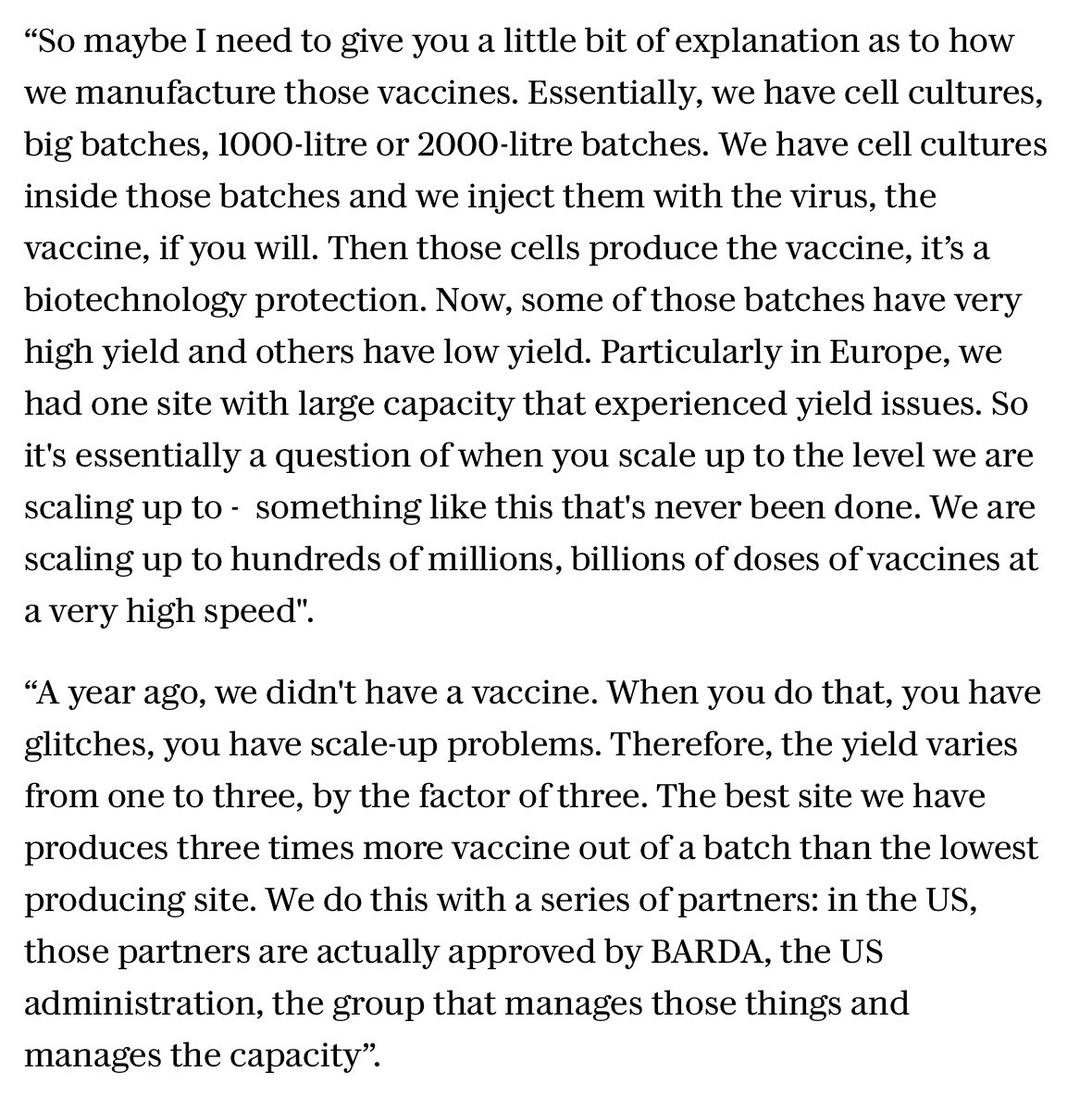Making lots of vaccine as fast as possible is now the most important bottleneck on ending the pandemic. I wrote about how the manufacturing ecosystems for different techs (mRNA, viral vector, dead virus) is scaling up https://www.economist.com/science-and-technology/2021/02/06/how-vaccines-are-made-and-why-it-is-hard
The different vaccines exist on a spectrum of reliance upon biological systems for their scaled production. On one end of that spectrum are old fashioned vaccines, inactivated copies of SARS-CoV-2 grown in cell culture
On the other of the spectrum end are mRNA vaccines. They rely on cell culture only at the very start, to produce a small amount of DNA that encodes for the spike protein. That DNA is then processed using industry chemistry to get to messenger RNA
the reason this spectrum matters is that making things using the living cells of complex organisms is very tricky. you need to keep the cells alive and healthy while they pump out the product you want
it's a whole subfield of biotech. maintaining this balance is a fiddly nuisance. Here's the boss of @AstraZeneca saying so
mRNA vaccines have clearly been scaled really quickly, but their biggest benefit comes down the line if and when vaccines *have* to be updated with new viral genomes in order to have efficacy against new variants of the virus
by all accounts mRNA can do this at least a month faster than even the fastest cell culture production systems (Astrazeneca's). That quicker turnaround could end up being crucial to ending the pandemic

 Read on Twitter
Read on Twitter


